The first time we see Benny (Austin Butler) truly smile isn’t on his first date with future wife Cathy (Killing Eve’s Jodie Comer). Oh, he gives a smolder and half smirk during their meet cute with his James Dean-coiffed hair and white tank top. But that’s not what brings out the smile. That comes later after the bad boy outruns a few police cruisers on his motorcycle, weaving through a stoplight as cars screech to a halt and the police are temporarily blocked. Free of them, Benny gives off a wide-grinned cheer that sells the freedom of riding that bike… until it breaks down five seconds later in the middle of Midwestern farm territory.
It’s a funny outcome to the chase, but a suitable metaphor for the vibe of The Bikeriders, a motorcycle drama about the rise and fall of a bygone era. And vibes are certainly what director Jeff Nichols is going for here. The feel of a mid-1960s and early 1970s world when the biker gang counterculture reached its peak, embodying a freedom from everyday life and defining itself as much by male bonding as a growing deviancy outside the law. Vibes are also really what lend the movie its glamorized appeal, as the story and character arcs guiding it down the road feel somewhat pedestrian.
Benny might be the film’s rebel, but it’s Cathy who anchors Nichols’s story as our POV. Based on Danny Lyon’s 1968 book—comprised of photos and interviews from his time integrated within the Outlaws bikers club—there’s a meta-element to The Bikeriders’ story, unfolding through interspersed interviews between Cathy and Lyon (Challengers’ Mike Faist) in the 1960s and ’70s. Through Cathy, we learn how she and Benny met at a biker bar one night and fell in love. How the Vandals began as a riding club by leader Johnny (Tom Hardy) and then ballooned into something more organized. Violent even, especially as new members joined its ranks or set up clubs and Johnny’s ambition is tested by the rise of younger, more uncompromising rabble-rousers—and his subsequent realization of how much time he’s got left to run the show.
Does a lot happen in The Bikeriders? Yes and no. We spend a lot of time with the individual gang members who, played by the likes of Michael Shannon, Boyd Holbrook, and Damon Herriman, fit the look of a working-class community yearning to make their lives more exciting. Hardy is effective as their leather-jacketed Vito Corleone—a truck driver-turned-gang leader who, amusingly, got his club inspiration watching Marlon Brando in The Wild One. He also doubles as Benny’s father figure and someone willing to commit unsavory deeds to uphold his community’s honor.
But the worldbuilding only goes so far, entrapping the Vandals so much within their corner of the American Midwest that our best outside connection is a barely recognizable Norman Reedus as a yellow-toothed Californian rider. Even the film’s most unsettling dynamic, which tracks Toby Wallace as an unnamed ruffian inspired by the Vandals but lacking in their morals, isn’t depicted enough to develop his menacing character beyond a looming symbol of incoming ’70s cynicism.
Once again, it’s the vibes of The Bikeriders that stick with you. The rush of motorcycles traveling down the open road and loud, burly men hanging out, throwing fists, and eventually gathering together for beers and campfire, chest-puffing conversations. It’s a push-pull dynamic between the exciting and dangerous elements of this lifestyle, mirrored by how Cathy and Johnny perceive Benny. One believes he’ll make a great successor to lead the Vandals’ future, while Cathy just wants to get him out of this life before something terrible happens. Neither is willing to back down.
If Butler’s the malleable brooding youth, Comer thrives as the tough-as-nails partner who recognizes where the movement’s heading before anyone else does. Cathy has her gripes and makes no secret of them, from the gang’s nonsensical rules to how members’ wives behave. She knows what she wants and isn’t afraid to tell the men off when they mess up, lending sensitivity to a group whose capacity for opening up is difficult, to say the least.
The movie shines a nostalgic spotlight on motorcycle culture with mixed execution. The visual language is appealing, and you understand how these characters would find much to enjoy about this lifestyle, especially during the quiet moments of group camaraderie. Yet at heart, The Bikeriders feels more comfortable exploring how this lifestyle fell apart than developing the men who originally made it feel inviting.

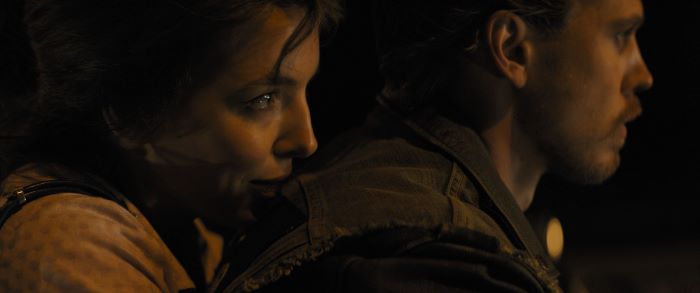
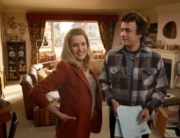

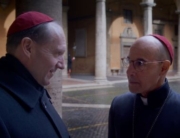
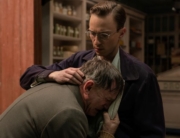
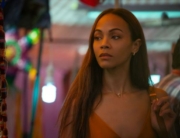
Leave A Comment